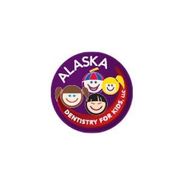How Does Calcium Affect Your Child's Teeth?

Parents today have more information than ever before about nutrition and childhood development. But not everyone understands the importance of calcium or the role it plays in pediatric oral health. A calcium deficiency early in life can affect your child’s dental care and even stunt their growth. Here’s what you need to know about the essential mineral and its impact.
How Calcium Impacts Kids’ Dental Care
Calcium plays an essential role in bone growth, muscle contraction, nerve function, and blood pressure regulation. It’s also one of the critical elements involved in bone growth and development, which means it’s particularly important for kids. Childhood calcium deficiencies are linked to more frequent bone fractures, rickets, low bone density, stunted growth, and, eventually, osteoporosis.
Bones and teeth are living tissue that store calcium. If a person doesn’t absorb enough calcium in their diet, the parathyroid glands release a hormone that causes the bones and teeth to secrete calcium into the bloodstream. Over time, this process depletes the skeletal system, causing bones to soften and weaken.
When this happens in the oral cavity, it can delay tooth formation or lead to tooth decay, weakened roots, and gum irritation. If the jawbone doesn't develop properly, it raises complications for your child’s dental care down the road. Low bone density can make them more susceptible to tooth loss and instability.
What Are Good Sources of Calcium?
The first two decades of your child’s life are critical when it comes to nutrition. During this time, your child will develop up to 90% of the peak bone mass they’ll use throughout their lifetime. To ensure they have strong teeth and bones, you should encourage your child to eat calcium-rich foods, such as:
-
 Milk
Milk -
Yogurt
-
Cheese
-
Broccoli
-
Leafy greens
-
Almonds
-
Chickpeas
Many cereals, tofu, bread, and juice are also fortified with calcium, so check nutrition labels. In addition to monitoring your child’s calcium intake, you need to ensure they get enough vitamin D, too. Vitamin D helps with calcium absorption and can be found in salmon, tuna, cheese, and egg yolks. Sun exposure will also increase vitamin D levels.
How Much Calcium Do Kids Need?
The U.S. Food and Nutrition Board recommends kids between the ages of 9 and 18 years receive at least 1,300 milligrams (mg) of calcium every day. Most children between 4 and 8 only need about 1,000 mg of calcium, and toddlers 1-3 years old need 700 mg. Infants get calcium from breast milk or formula and need at minimum 200-260 mg per day.
Sometimes it’s difficult to help kids get enough calcium through their diet, especially if they don’t like milk or are lactose-intolerant. Work with your dentist and pediatrician to monitor your child’s development and ensure they have everything they need for a lifetime of healthy bones and teeth. To schedule an appointment with a children’s dentist in Anchorage, call Alaska Dentistry for Kids at (907) 274-2525 today. Visit their website to learn more about pediatric dental care and their exceptional, kid-friendly approach.
About the Business
Have a question? Ask the experts!
Send your question

